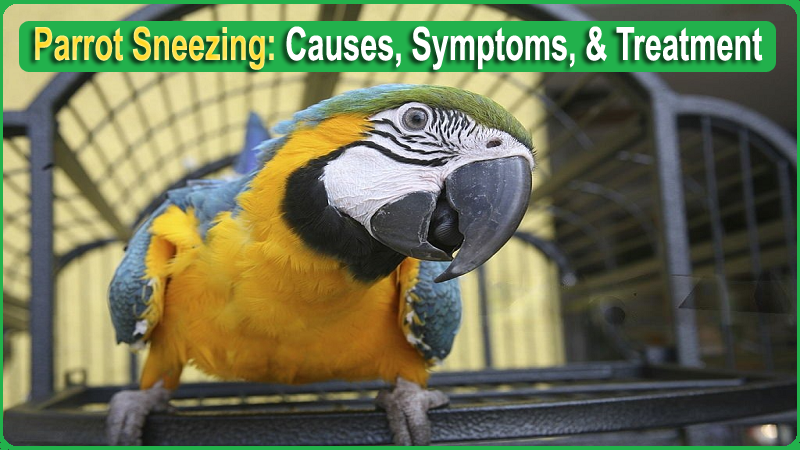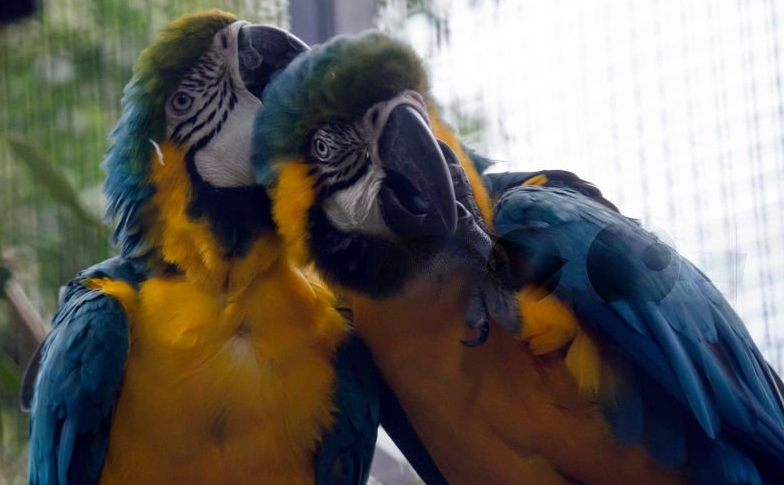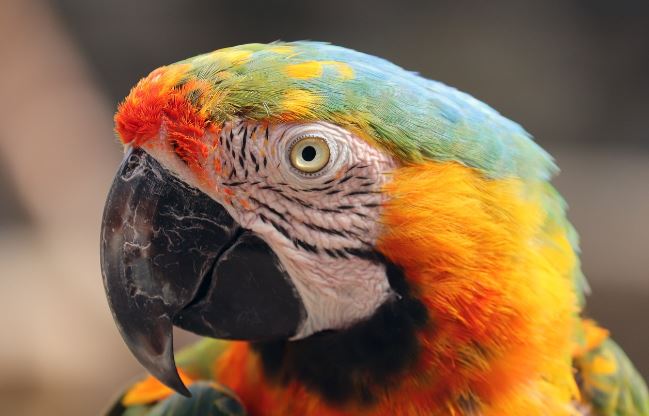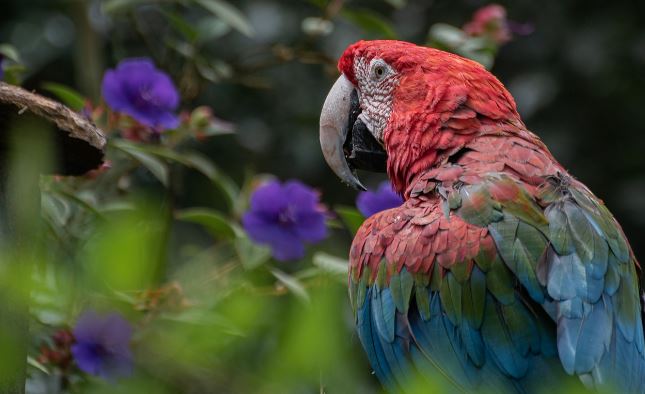Are you finding unique stuffs about Parrot Sneezing? And, how can stop it with home remedies and medical assistance? If yes! Then you have come at the right page, because here you will get all possible things about your parrot keeps sneezing and their causes, symptoms, prevention and treatment with ease.
Do you have curious to grab information about your parrots sneezing? These colorful feathered birds, occasionally keep sneezing behavior, then pet owners get shocked. However, an occasional sneeze is normal behavior. It may be a part of their natural respiratory process, but persistent or excessive sneezing could indicate an underlying issue.
Generally, parrots can lead exceptionally long lives, but that doesn’t exactly mean that they will not contract illnesses over time. There are many major reasons of sneezing in parrots that you should need to be aware of.
Do Parrots Sneeze?
Yes! Parrots do sneeze. When your parrots get sneeze, then it helps to expel irritants from their nasal passages. If, sneezing as occasional, then it can be normal; because it may occur from dust, dander, or minor irritants.
But, If sneeze is happening as frequent or persistent, then it may give indication environmental irritants, allergens, infections (bacterial, viral, or fungal), and nutritional deficiencies.
Your parrots can show symptoms like nasal discharge, labored breathing, or lethargy. Then, quickly take consultation from an avian veterinarian.
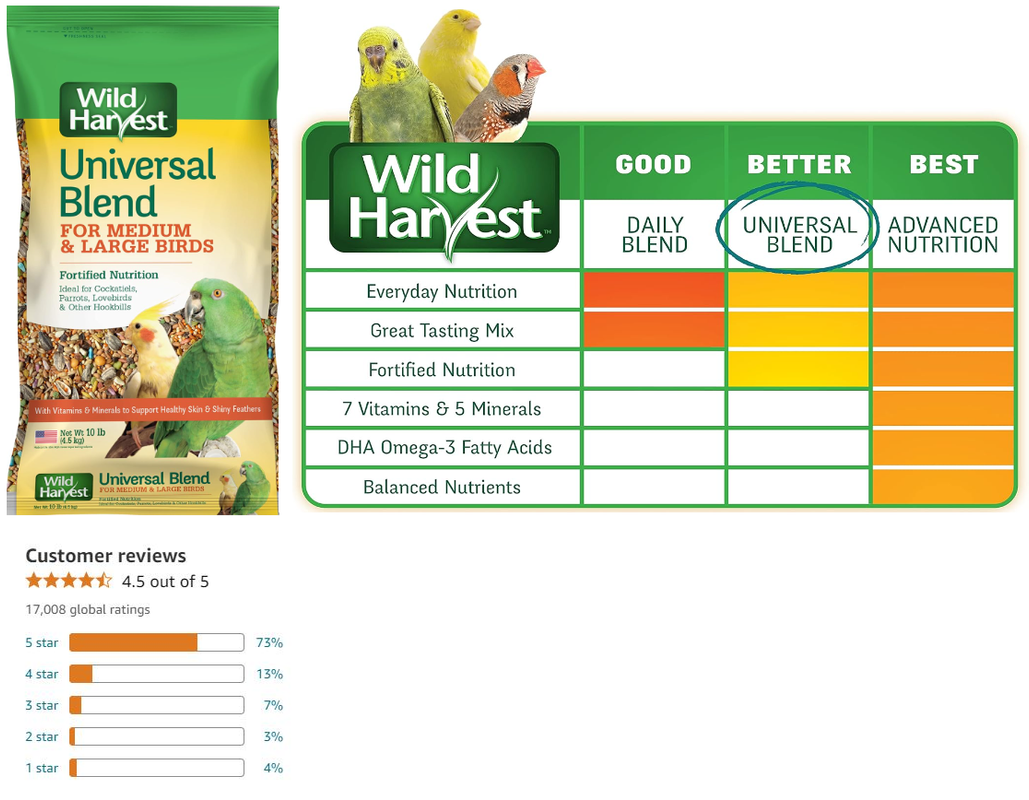
You should keep a clean environment and offering a balanced diet. It can give protection from sneeze problem and ensure their respiratory health.
What Are Difference Normal and Abnormal Sneezing of Parrots?
There some vital differences in between normal and abnormal sneezing in parrots are:
Also Read: Can Parrots Get Cold? Parrots Safe Temperature
Normal Sneezing
Characteristics of Normal Sneezing
- Frequency: Occasional sneezing means once or twice a day.
- Trigger: Temporary irritants like dust, dander, or a small feather in the nostrils.
- Duration: Short-lived and resolves quickly without additional symptoms.
- Behavior: The parrot remains always active and alert. They don’t show any changes in eating or drinking habits.
Common Causes
- Environmental Dust: Minor irritants from the bird’s immediate environment.
- Preening: Particles from feathers can cause a brief sneeze.
- Dry Air: Temporary dryness, often resolved with proper humidity levels.
Abnormal Sneezing
Characteristics of Abnormal Sneezing:
- Frequency: Frequent or persistent sneezing over an extended period.
- Associated Symptoms: They can show other signs such as nasal discharge, labored breathing, wheezing, coughing, or lethargy.
- Behavior: You can see changes in behavior, such as reduced activity, reluctance to eat, or visible distress.
Common Causes
- Environmental Irritants: Constant exposure to harmful aerosols, chemicals, or tobacco smoke.
- Allergens: Persistent allergens in the environment or diet.
- Infections: Bacterial (Mycoplasma), viral (Avian Influenza), or fungal (Aspergillosis) infections affecting the respiratory system.
- Foreign Objects: Lodged particles causing continuous irritation.
- Nutritional Deficiencies: Lack of essential nutrients, especially Vitamin A that leading to weakened respiratory health.
Why Gets Parrot Sneeze After Taking Water?
Parrots sneezing after taking water can be a normal reflex or indicate specific issues. There are few potential reasons, including:
Normal Reflex
- Water Droplets: When parrots drink, small water droplets can enter their nasal passages. Sneezing helps expel these droplets to clear their airways.
- Drinking Behavior: Parrots often dip their beaks into water and tilt their heads back. So, it can cause water to splash or enter the nostrils, triggering a sneeze.
Potential Concerns
- Water Quality: If the water contains irritants, it can also cause sneezing. Water should be clean and fresh.
- Nasal Irritation: Some parrots may have sensitive nasal passages that react to the temperature or water quality.
- Underlying Health Issues: Frequent sneezing after drinking water, especially if accompanied by other symptoms like nasal discharge or lethargy, could indicate respiratory issues or infections that need veterinary attention.
What Are Major Reasons of Sneezing in Parrots?
Sneezing in parrots can arise from various causes, some of which are relatively harmless, while others may indicate serious health issues. Here are the seven major reasons why parrots might sneeze.
Also Read: Parrot Sneezing with its Causes, Symptoms, and Treatment
1) Environmental Irritants
Dust and Dander: Parrots produce the feather dust that along with dander; it can accumulate in their environment. These particles may irritate their respiratory system that lead to sneeze problem. You can get minimize sneezing issue with cleaning of the cage and surrounding area.
Aerosols and Chemicals: Some household products, including air fresheners, cleaning agents, and perfumes consist the chemicals particles. They can highly irritating to a parrot’s sensitive respiratory system. So, you should be keeping away these products from your parrots.
Tobacco Smoke: Cigarette smoke is most harmful to parrots, if they exposure it. Tobacco smoke have more dangerous chemical that can pose many respiratory irritation. So, this smoke can lead to chronic sneezing in your parrots.
2) Allergens
Food Allergies: Parrots can get allergic to some foods, including specific fruits, seeds, or other ingredients in their diet. Allergic reactions can pose sneezing along with other symptoms such as itching and digestive upset.
Environmental Allergens: Parrots can also get allergens from pollens, mold spores, and other airborne particles. Seasonal changes or poor ventilation can also increase these allergens in the parrot’s environment.
3) Infections
Bacterial Infections: Some bacteria such as Mycoplasma or Chlamydia can also affect the parrot’s respiratory system. There symptoms are often include sneezing, nasal discharge, and general lethargy. Now, your parrots need the prompt veterinary treatment with antibiotics.
Viral Infections: Viruses like Avian Influenza or Psittacine Beak and other Feather Diseases (PBFD) can also reason of respiratory symptoms in parrots, including sneezing. These infections are often serious, and may show many signs like feather loss or beak deformities.
Fungal Infections: Aspergillos fungal infection is common found in birds that caused by the Aspergillus fungus. Generally, it affects the respiratory system that will show many symptoms including sneezing, difficulty breathing, and nasal discharge. So, you should give antifungal treatments, and often get environmental adjustments to decrease the humidity and mold growth.
4) Foreign Objects
Lodged Particles: Parrots are more curious, and accidentally intake small particles or debris when they are playing. Seeds, bits of food, or other small objects can become lodged in their nasal passages, causing irritation and sneezing. Should be monitoring the parrot’s environment and keeping it free of small, inhalable objects can help prevent this.
5) Nutritional Deficiencies
Vitamin A Deficiency: Due to lack of Vitamin A in a parrot’s diet, parrots can lead to poor respiratory health. Vitamin A helps to maintain the healthy mucous membranes in the respiratory tract. Their deficiency can become dry the mucous membranes, and get more susceptible to infection and irritation that leading to sneezing and other respiratory symptoms.
6) Environmental Conditions
Dry Air: Parrots are more sensitive to the humidity levels in their environment. Too dry air can dry out their nasal passages that leading to irritation and sneezing. So, you can use a humidifier to ensure adequate humidity levels that can help maintain their respiratory health.
Temperature Fluctuations: Sudden changes in temperature, such as drafts or moving a parrot from a warm to a cold area abruptly, can stress their respiratory system and lead to sneezing. So, you should be maintaining a stable and comfortable temperature to their health.
7) Stress and Anxiety
Stress: Parrots are more sensitive to changes in their environment or routine. High stress levels can weaken their immune system that making them more susceptible to infections and respiratory issues.
What Are the Symptoms of Parrot Sneezing?
Sneezing itself is a primary symptom. But, it can also show other various signs that indicating a potential health issue.
Also Read: How to Tame a Parrot? Tips & Techniques for Success
Nasal Discharge
- Clear: Often indicates an allergic reaction or minor irritation.
- Colored (Yellow, Green): Suggests a bacterial or fungal infection.
Labored Breathing: If, parrots take breath in difficulty as wheezing, or open-mouth breathing; then it can indicate respiratory distress.
Coughing or Wheezing: Sounds of coughing or wheezing often accompany respiratory infections.
Lethargy: Decreased activity levels and increased sleepiness are common signs of illness.
Loss of Appetite: A sick parrot may eat less or refuse food entirely.
Swelling around Eyes or Nasal Area: Swelling can indicate infection or inflammation in the sinus cavities.
Changes in Vocalization: Altered sounds or less frequent vocalization can signal discomfort or illness.
Feather Plucking: Stress or discomfort might lead to feather plucking. It is sometimes associated with respiratory issues.
What Are Home Remedies of Parrot Sneezing?
There are some home treatments for parrot sneezing, including:
Clean Environment
- Regularly clean the parrot’s cage, perches, and toys to reduce dust and dander.
- You can use air purifiers to minimize airborne irritants.
Proper Ventilation
- Ensure good air circulation in the room where the parrot spends time.
Humidity Control
- Maintain appropriate humidity levels to prevent dry nasal passages, using a humidifier.
Healthy Diet
- Provide a balanced diet rich in essential nutrients, especially Vitamin A.
Hydration
- Should offer the fresh, clean water at all times to prevent dehydration.
Warm Mist Bath
- Offer occasional warm mist baths to alleviate respiratory congestion.
Stress Reduction
- Minimize stressors in the parrot’s environment and provide enrichment activities and social interaction.
Observation and Monitoring
- Keep a close eye on the parrot’s behavior and respiratory symptoms.
- Seek veterinary care if sneezing persists or worsens, or if other concerning symptoms develop.
Medical Treatment for Parrots Sneezing
The medical treatment for parrots sneezing depends on the underlying cause of the sneezing. Here are some common treatments for parrots sneezing, including:
Also Read: Is Your Parrot Coughing? Causes, Symptoms, and Treatment
Antibiotics
- Bacterial Infections: If a bacterial infection is suspected or confirmed through diagnostic tests, then veterinarian may prescribe antibiotics. Some antibiotics can give parrots such as enrofloxacin, doxycycline, or azithromycin. But, the choice of antibiotic and duration of treatment will depend on the specific bacteria involved.
Antifungal Medications
- Fungal Infections: Veterinarian may prescribe aspergillosis, antifungal medications like itraconazole or voriconazole for fungal infections. These medications aid to decline the fungal growth in the respiratory tract.
Antiviral Medications
- Viral Infections: There are limited antiviral medications available for treating viral infections in parrots. Therefore, you should be supportive care, such as maintaining optimal nutrition and environmental conditions. It is essential to help the bird’s immune system fight off the virus.
Anti-inflammatory Drugs
- Respiratory Inflammation: If the sneezing occurs due to inflammation in the respiratory tract, the veterinarian may prescribe anti-inflammatory drugs to reduce swelling and discomfort. Common medications include corticosteroids like prednisolone.
Nasal Drops or Sprays
- Nasal Irritation: Saline nasal drops or sprays may be recommended to help clear the nasal passages and alleviate irritation. In some cases, medicated nasal drops containing antibiotics or antifungal agents may be prescribed.
Surgery
- Foreign Object Removal: In some cases, if any foreign object get insert into parrot’s nose that leading to nasal obstruction and persistent sneezing. Now, surgical intervention is mandatory to remove the object safely.
FAQs (Frequently Asked Questions)
Is It Normal for Parrots to Sneeze?
Yes! Occasional sneezing in parrots can be normal, just like in humans. It may be a response to dust or other irritants in the air. However, frequent or persistent sneezing should be monitored closely.
When Should I Concern About My Parrot Sneezing?
You should concern, if your parrot’s sneezing is accompanied by other symptoms such as:
- Discharge from the nostrils
- Changes in voice or difficulty breathing
- Lethargy or changes in behavior
- Loss of appetite
- Swelling around the eyes or face
Can Diet Affect My Parrot’s Respiratory Health?
Yes! Balanced diet can also support overall health, including respiratory health. so, you should feed a varied diet with fresh fruits, vegetables, and high-quality pellets. Avoid foods that may cause allergies or respiratory issues.
How Do You Know If Your Parrot Has a Respiratory Infection?
Signs of a respiratory infection in parrots may include:
- Persistent sneezing or coughing
- Nasal discharge
- Difficulty breathing or open-mouth breathing
- Wheezing sounds
- Swollen or inflamed eyes
- Decreased activity or appetite
What Should I Do If My Parrot Has a Respiratory Infection?
If you suspect your parrot has a respiratory infection, take the following steps:
- Isolate your parrot from other birds to prevent the spread of infection.
- Ensure your parrot is warm and comfortable.
- Offer fresh water and nutritious food.
- Schedule an appointment with an avian veterinarian for a proper diagnosis and treatment plan.
Final Remarks
As resulting of this post, Parrots may keep sneeze, due to several reasons, like as environmental concerns, dust, or minor irritants. Occasional sneezing, we can marks as normal behavior; but it gets persistent or severe episodes can display underlying health issues. Then, you should prompt veterinary attention.
Also Read: How to Care a Sick Parrot? Symptoms, Causes, & Treatment
If this article is valuable for you, then please share it along with your friends, family members, pet lovers or relatives over social media platforms like as Facebook, Instagram, Linked In, Twitter, and more.
Do you have any experience, tips, tricks, or query regarding on this? You can drop a comment!
Have a Nice Day!!

